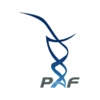Rapport final – May 2024
Ken Maclean, PhD, Université du Colorado Denver
«Traitement chimique de chaperon pour restaurer l'activité enzymatique dans les mutations pliantes de la propionyl-Co-A carboxylase: Vers une stratégie thérapeutique personnalisée dans l'acidémie propionique (Pennsylvanie)”
Acidémie propionique (Pennsylvanie) (MIM 606054), is a serious life-threatening disease that typically occurs in the early period of birth. Individuals with PA exhibit protein intolerance, vomissement, failure to thrive, léthargie, and profound metabolic acidosis
symptômes. This disease can result in mental retardation and without treatment, death can occur quickly, due to, infection, heart problems, or brain damage. There is a pressing need for improved treatments for PA.
PA is caused by mutation in an enzyme called propionyl-CoA carboxylase (PCC) This enzyme consists of two non-identical subunits, α and β, encoded by two different nuclear genes, called PCCA and PCCB.
We observed that a number, but not all, of patient mutations in the PCCB gene generate minimal PCC detectable activity due to the effect of that mutation on the ability of that protein to assemble and fold itself correctly. If the protein does not get to its correct shape, it cannot work properly and thus causes PA. We proposed to use a number of strategies to see if we could restore PCC activity by helping that protein to overcome its mutation and fold correctly. The idea was that if we restore the proteins shape, il retrouvera sa fonction et l'activité du PCC pourra être restaurée. Pour faire ça, nous avons traité des cellules bactériennes exprimant les protéines PCC mutantes avec une gamme de différents produits chimiques appelés « chaperons ».. Ces produits chimiques ont la capacité d’aider certaines protéines mutantes à se replier pour prendre la forme correcte et ainsi faire fonctionner à nouveau une protéine « cassée »..
Dans ce projet, nous avons examiné 32 différents chaperons chimiques candidats à une gamme de concentrations et ont pu identifier 4 candidates that were capable of at least partially rescuing PCC enzyme activity in our bacteria different PCCB folding mutant proteins.
Two of these chemicals were able to fix the mutant proteins to the point that their activity was essentially normal. in our bacterial system. We then tested these chemicals in PA patient derived skin cells grown in our lab, that carry the R165W mutation in PCC. Without treatment, these cells do not show any PCC activity. Both of these chemicals were able to significantly rescue the function of the R165W PCC mutant protein to the point that it had between 50 to 60% of the activity seen in normal skin cells. If we were able to restore this level of PCC activity in patients, it is highly likely that most of the clinical problems of PA would be prevented. Subsequent work in our lab found that this effect can also be achieved by inducing natural chaperone proteins in the skin cells and that the accumulation of badly folded PCC protein hurts the cell and is likely to be contributing to some of the clinical problems in PCC.
Collectively, our work opens up a new way of looking at some specific forms of PA and indicates a new possible line of therapy for this neglected condition. Ce travail n’aurait pas été possible sans le soutien de la Propionic Acidemia Foundation, et nous remercions sincèrement tous ceux qui ont contribué à ce fonds.

